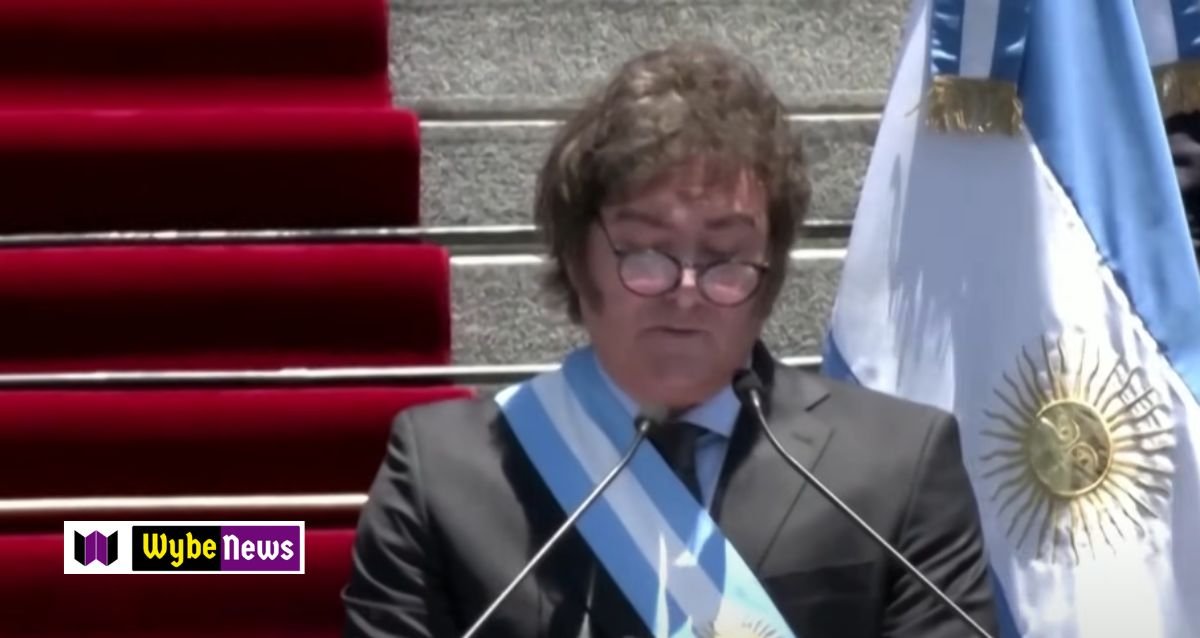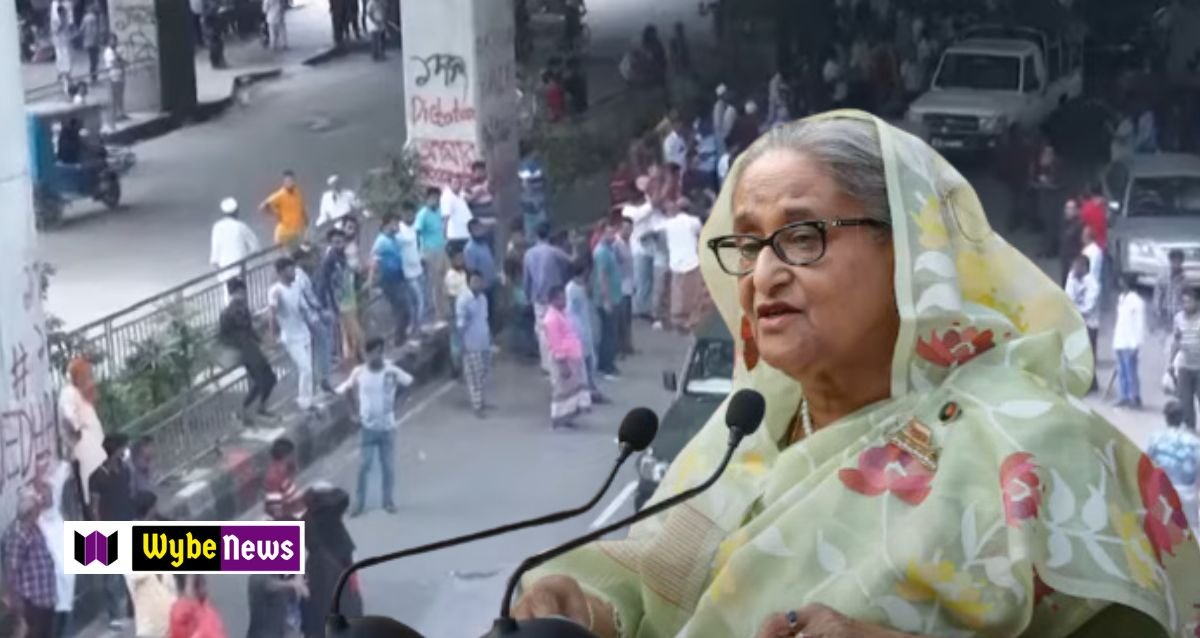President Javier Milei Criticizes ‘Progressive Hypocrisy’ Following Domestic Violence Accusations Against Predecessor Alberto Fernández

The Allegations Against Alberto Fernández
In a recent series of events, former President Alberto Fernández has come under intense scrutiny following accusations of domestic violence by his ex-girlfriend, Fabiola Yáñez. The allegations, which surfaced earlier this month, include detailed descriptions of psychological and physical abuse perpetrated during their relationship.
According to Yáñez’s complaint, the abuse began shortly after Fernández assumed office in December 2019 and continued until their relationship ended in early 2022. She alleges that Fernández’s behavior ranged from controlling tendencies to multiple instances of physical aggression. The timeline provided in her statements paints a concerning picture, suggesting that these acts of violence were not isolated incidents but rather part of a prolonged pattern of abusive conduct.
Alberto Fernández, who served as Argentina’s president from 2019 to 2023, has a storied political history, having previously held various governmental roles and being closely associated with the center-left political spectrum. His tenure was marked by efforts to address economic challenges, social inequality, and the global pandemic. However, these recent revelations have cast a shadow over his legacy, bringing into question the personal character of a leader once viewed as a progressive advocate for social justice.
Yáñez’s accusations are significant not only because of their serious nature but also due to the public and high-profile status of both individuals involved. The case has garnered widespread media attention, sparking debates about domestic violence, the accountability of public figures, and the societal expectations placed on those who hold positions of power. These discussions are particularly pertinent given Fernández’s political background and his previously publicized stances on human rights and gender equality.
As the legal proceedings unfold, the Argentine public and the broader international community remain attentive to developments in this case, which serves as a critical juncture in the ongoing conversation about the responsibilities of political leaders in their private lives and the broader implications for victims of domestic abuse.
President Javier Milei’s Response
President Javier Milei took to the X social network to express his vigorous response to the domestic violence allegations leveled against his predecessor, Alberto Fernández. Milei’s post was unequivocal, laden with criticism of what he termed as ‘progressive hypocrisy.’ He underscored the irony he perceived in the accusations against a former leader who had championed gender policies aimed at curbing such incidents.
In his message, Milei asserted, “The patently hypocritical stance adopted by the so-called progressive leaders is now laid bare. These are the very individuals who have incessantly advocated for stringent gender policies, yet they find themselves ensnared in the very allegations they sought to legislate against.” His words resonated with a pointed critique of the policies he deemed ineffective and superficial.
Milei went on to argue that the gender policies promulgated by Fernández’s administration failed to address the root causes of domestic violence. He maintained that the focus should rather be on fostering societal and cultural transformation, instead of merely instituting punitive measures. According to Milei, “True change arises from deep-seated cultural shifts, not from hastily enacted policies that do little more than scratch the surface of a widespread problem.”
Analyzing Milei’s perspective, it becomes evident that he perceives a broader societal malaise. He suggests that progressive politics often serve as a façade, masking underlying issues with perfunctory solutions. His critique extends beyond the immediate scandal, offering a comprehensive dissection of progressive politics and their ramifications in society.
The societal implications of this scandal, according to Milei, reflect a broader disillusionment with progressive leadership. In highlighting what he sees as the contradictions of Fernández’s tenure, Milei seeks to cast doubt on the credibility and efficacy of his predecessor’s entire political agenda. This stance illustrates a fundamental ideological divide, shedding light on the contentious political landscape as Milei challenges the previous administration’s legacy.
Public and Political Reactions
The accusations against the former President Alberto Fernández have sparked a wave of reactions across the political landscape and the general public. Javier Milei’s criticism, which pointed to what he referred to as ‘progressive hypocrisy,’ has divided opinion sharply. Some view this as a necessary critique to hold political figures accountable, while others perceive it as an opportunistic attack designed to undermine Fernández’s legacy and dismiss his administration’s efforts on gender policies.
Supporters of Milei’s position argue that it is essential to highlight inconsistencies and perceived failures in the previous administration’s stance on gender issues. They believe that Fernández’s alleged actions run contrary to the progressive values he promoted, thus justifying Milei’s harsh critique. Prominent political analysts who favor this viewpoint assert that accountability is paramount, regardless of political allegiance, and that calling out hypocrisy is necessary for transparency and integrity in governance.
Conversely, defenders of Fernández argue that the former president’s administration made significant strides in advancing gender equality and defending women’s rights. They suggest that Milei’s criticism is an unfair and politically motivated attack rather than a genuine concern for addressing domestic violence. Activists and public figures who support this perspective emphasize the importance of continuing to support the policies and frameworks initiated during Fernández’s tenure, regardless of the recent accusations.
Key political figures have also weighed in on the matter. Some members of Milei’s own party have echoed his sentiments, demanding thorough investigations and greater accountability from all political leaders. On the other hand, Fernández’s allies have called for patience and due process, urging the public not to rush to judgment based on allegations alone. They reaffirm their commitment to upholding and building upon the initiatives aimed at combating gender-based violence.
The public sentiment is equally polarized, with social media platforms and opinion polls reflecting a divided nation. While some citizens feel betrayed by the allegations against Fernández, others express concerns over the potential politicization of serious issues like domestic violence. This ongoing debate illustrates the complexities of navigating political and social accusations, especially when they intersect with deeply rooted societal values and beliefs.
The Future of Gender Policies in Argentina
The political landscape in Argentina has significantly shifted under President Javier Milei’s administration, especially concerning gender policies. Since taking office in December, Milei has initiated a series of changes and cuts to national women, gender, and diversity programs. These actions are indicative of his broader stance on what he perceives as ‘progressive hypocrisy,’ a term he uses to criticize previous administrations’ gender policies, including those led by Alberto Fernández. As a result, several initiatives that aimed at protecting women and promoting gender equality are currently under review or have faced budget reductions.
Changes in funding for these programs have raised concerns among experts and activists. The National Institute of Women and Gender (INAM) and the Comprehensive Sexual Education program (ESI) are two key areas that have experienced significant cutbacks. Stakeholders fear that these reductions could undermine years of progress in gender equality and women’s rights. The Milei administration, however, argues that these changes are necessary to eliminate what it considers inefficient use of resources and to prioritize other sectors more crucial to Argentina’s immediate needs.
Legislation related to gender policies might also see substantial amendments under Milei. There are speculations about revising the Law on Comprehensive Protection for Women, which has been a cornerstone for advocating against gender-based violence. Any changes could alter the scope of protection offered to victims. Moreover, the administration’s approach towards social programs targeting gender equality is expected to shift from a focus on systemic issues to more individualized interventions, which may affect long-term strategies for societal change.
Experts warn that these developments could reverse historical gains in gender parity. According to Dr. Laura Gómez, a gender studies scholar at Buenos Aires University, “The budget cuts and potential legislative changes threaten to dismantle crucial protections and services. This risks leaving marginalized groups more vulnerable.” The historical context also shows that previous progressive policies, despite their flaws, have contributed to considerable strides in women’s empowerment and gender rights in Argentina.
In summary, the future of gender policies in Argentina under President Milei’s administration remains uncertain. While the government promotes these changes as reforms, the potential impacts on the well-being of women and gender minorities could be profound, requiring careful scrutiny and active dialogue among policymakers, experts, and civil society.






